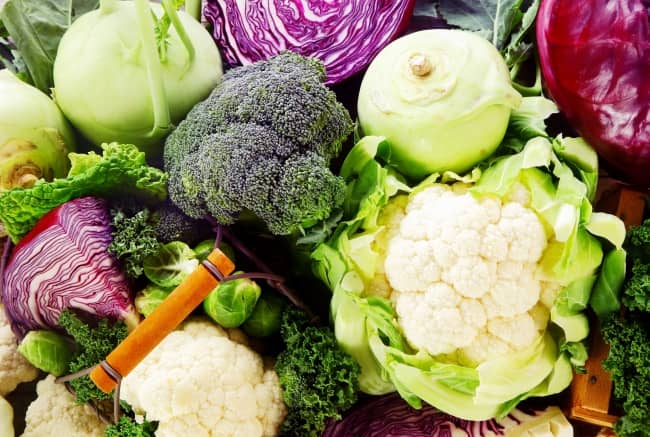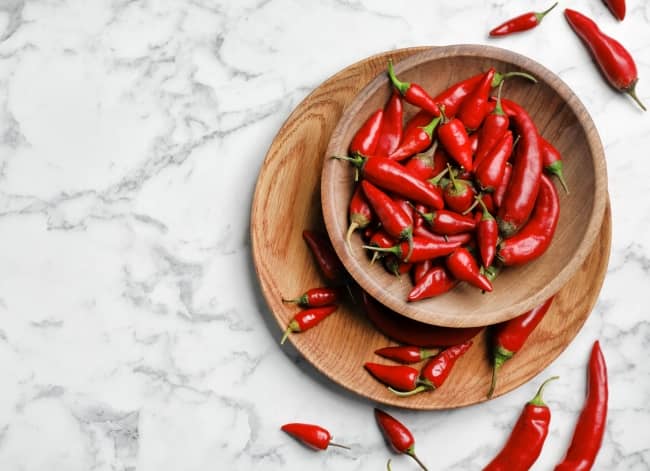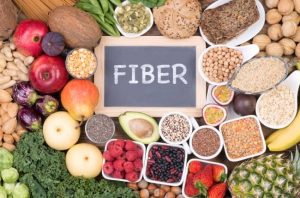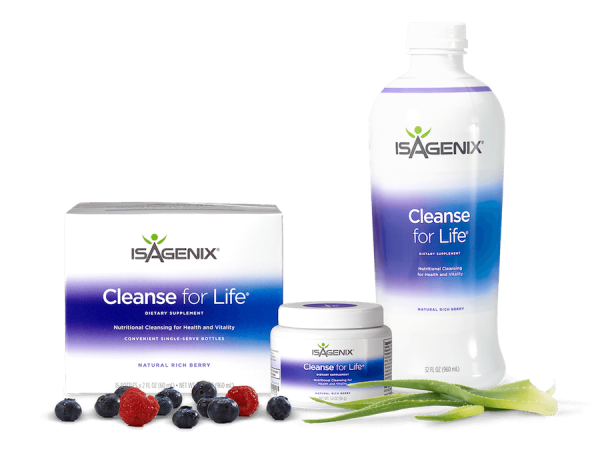10 Foods That Boost Metabolism
“I have a slow metabolism.”
Have you ever thought that about yourself? Or heard someone else say it in their frustration over stalled weight loss efforts?
Whenever the topic of weight loss comes up, there’s almost always a mention of metabolism.
Metabolism plays a critical role in weight loss efforts, making it discouraging if you feel like your metabolism isn’t working in your favor.
Fortunately, there are natural ways to boost your metabolism and optimize your weight loss efforts. Here, we’ll cover some of the best ways to boost metabolism, including foods that boost metabolism and other important factors to keep in mind on your health journey.
What Is Metabolism?
Metabolism is the body’s chemical process of capturing, converting, and burning energy.
More simply, it’s the rate at which your body burns calories (or energy).
The higher your metabolism, the more calories you’ll burn during your daily routine.
Metabolism is directly influenced by various factors, including your environment, behavior, genetics, and hormones.
Can Certain Foods Boost Metabolism?
While there is no proof that the food you eat can drastically boost your metabolism, certain foods can support a slightly faster metabolism. This is due to specific nutrients and a concept known as TEF (thermic effect of food). Foods that require more energy to digest and absorb have an increased thermic effect.
10 Foods That Boost Metabolism
1. Fruits Rich in Vitamin C
Along with fiber, phytonutrients, and vitamins, certain fruits are packed with vitamin C. This antioxidant assists the body in the absorption of iron, a key nutrient for a healthy metabolism.
Vitamin-C-rich fruits to include in your metabolism-boosting diet include:
- Oranges
- Mango
- Kiwis
- Guava
- Lemons
- Papaya
- Pineapple
- Grapefruit
- Strawberries, blueberries, and raspberries
2. Cruciferous Vegetables
Cruciferous vegetables are packed with metabolism boosters such as vitamin C, calcium, and B vitamins. They also boast a high fiber and water content.
These vegetables also contain sulforaphane, a nutrient that helps the body detox itself from toxins and excess estrogen — both factors that can slow your metabolism.
Try including these cruciferous veggies in your diet regularly:
- Broccoli
- Brussel sprouts
- Cauliflower
- Cabbage
3. Dark Leafy Greens
Leafy greens contain iron and magnesium, two crucial nutrients for a healthy metabolism. To ensure you are getting optimal benefits from the iron in dark leafy greens, consume them with vitamin C-rich foods.
4. Citrus Foods
Along with their high content of Vitamin C, citrus fruits contain additional compounds that can support a healthy metabolism. For instance, lemons contain limonin, a nutrient that assists with liver detoxification to support fat loss.
Grapefruit is excellent for digestion, low in sugar, and high in nutrients that can help support fat loss.
5. Chili Peppers
Chili peppers are well known for the spicy taste they add to dishes. This fiery flavor is a result of capsaicin, a bioactive compound that offers a variety of benefits and helps the body burn additional energy (a.k.a. calories).
Other spicy foods such as cayenne pepper may also offer metabolism-boosting benefits.
6. Tea
Does green tea boost metabolism? Yes, it can! Although results vary based on the individual, tea can be a natural way to boost metabolism.
Green tea is a particularly excellent metabolism booster, but you can also enjoy matcha, oolong, or earl gray tea for metabolism support.
Tea helps support a healthy metabolism thanks to its caffeine, antioxidants, and potent compounds such as catechins.
7. Lentils and Beans
Iron is a key mineral for helping oxygen flow freely through the body — a key action for metabolism and energy. Along with fiber and plant-based protein, beans and lentils provide an excellent source of iron.
8. Oats and Other High Fiber Foods
There are multiple benefits of high-fiber foods, including a potential boost in metabolism.
High-fiber foods take longer to chew and digest, requiring the body to burn more calories to process them. Fiber also helps keep you fuller for longer, helping to prevent overeating.
Fiber also plays a key role in supporting a healthy gut, managing inflammation, supporting healthy cholesterol levels, and balancing blood sugar — all of which influence metabolism.
Oats are an excellent high-fiber grain to include in your diet. Other high-fiber foods include:
- Carrots
- Apples
- Pears
- Avocados
- Broccoli
- Beets
- Lentils
- Brussel sprouts
- Ready-made high-fiber snacks
- Beans and legumes
- Artichokes
- Quinoa
- Almonds
- Whole grain popcorn
- Pistachios
- Walnuts
- Asparagus
- Leeks
- Chia seeds
- Sunflower seeds
- Pumpkin seeds
- Sweet potatoes
- Berries
- Spinach
- Kale
- Brown rice
- Whole grain bread
9. Seeds
Flaxseeds and hemp seeds are packed with healthy fatty acids that help reduce inflammation and promote adequate blood flow to muscles. Both of these actions can help ramp up the metabolism.
10. Coconut Oil
Coconut oil helps support good bacteria and balanced digestion. It also contains medium chain triglycerides, a healthy type of fat that helps support a strong metabolism.
What Vitamins Boost Metabolism?
If you are looking for vitamins and supplements to help support a healthy metabolism, we highly recommend:
Everyday Health Pack — A trio of products designed with nutrients and adaptogens to help support weight loss, weight management, and higher metabolism.
Cleanse for Life — A proprietary blend of antioxidants and natural detoxifying herbs that work synergistically to help support a healthy metabolism.
Natural Accelerator — Naturally boost your metabolism and accelerate your weight loss with a thermogenic formula designed to help reduce appetite and burn fat.
Which Exercise Boosts Metabolism?
Exercise is an excellent way to support a healthy metabolism. In particular, HIIT (high-intensity interval training) can help the body use fat for energy instead of carbs. HIIT workouts can also keep your metabolism higher for several hours after your workouts. The result? You’ll continue burning calories even after your workout is over!
What Boosts Metabolism?
Wondering what else helps to boost metabolism? In addition to focusing on foods that boost metabolism, there are other steps you can take to keep your body running efficiently:
Try Intermittent Fasting — Although more research is needed, intermittent fasting may help encourage fat loss while protecting lean muscle.
Include Protein With Every Meal — Protein takes more energy to digest than fat or carbs.
Watch Your Portions — It isn’t enough to eat the right foods — you also have to eat the right amounts. Learn about recommended portion sizes for different foods to make sure you aren’t eating more than you realize. You can also eat your meals on smaller plates. This simple trick makes portions look bigger so it feels like you are consuming more food than you are.
Manage Stress Levels — Chronic stress produces cortisol, a hormone that can make it difficult to lose weight.
Get Enough Sleep — Not getting enough sleep? This can trigger the release of cortisol, a stress hormone that can make your body conserve energy (a.k.a. fat). A lack of sleep also affects your decision-making, putting you at risk of low willpower and poor nutritional choices.
Does A Cheat Day Boost Metabolism?
A cheat day can make it seem like you instantly gained several pounds, but you need to consume an additional 3,500 calories to gain a single pound of fat. You likely weigh more after a cheat day due to excess salt or food that you are still digesting.
A healthy diet needs to be something you can stick with long-term. Overly restrictive eating plans are not sustainable and often backfire. If you want to enjoy your favorite dessert, go for it.
It is okay to weave ‘unhealthy’ foods into a balanced, healthy diet. While you can’t overindulge every night, a simple cheat meal now and then will not slow your metabolism.
Do Certain Foods Slow Metabolism?
While a balanced, healthy diet can include a wide variety of foods, including occasional treats, some foods can slow down your metabolism.
If you are looking to boost your metabolism, pay attention to your intake of:
- Highly processed foods such as chips, cookies, desserts, and other packaged snack foods
- Foods high in saturated fat
- Foods containing trans fat
- High sugar foods
- Sweetened beverages such as juice or soda
- Greasy or fried foods
- Refined grains
Do Cold Showers Boost Metabolism?
While a cold shower can’t serve as your entire weight loss strategy, it can boost your metabolism. In response to the chilly water, your body undergoes a reaction as it uses energy to stay warm. This temporarily raises your metabolism and can help you burn extra calories.
Does Coffee Boost Metabolism?
Studies indicate the caffeine content in coffee may boost metabolism. Caffeine may also help the body burn additional fat to use for energy. Although its ability to boost metabolism depends on the individual’s age and weight, coffee offers other health benefits.
More Health Tips
Looking for more ways to boost metabolism? Check out our guide on 10 Ways to Boost Metabolism Naturally or feel free to reach out to us with any questions. We are always happy to hear from you or offer product recommendations based on your health goals.














